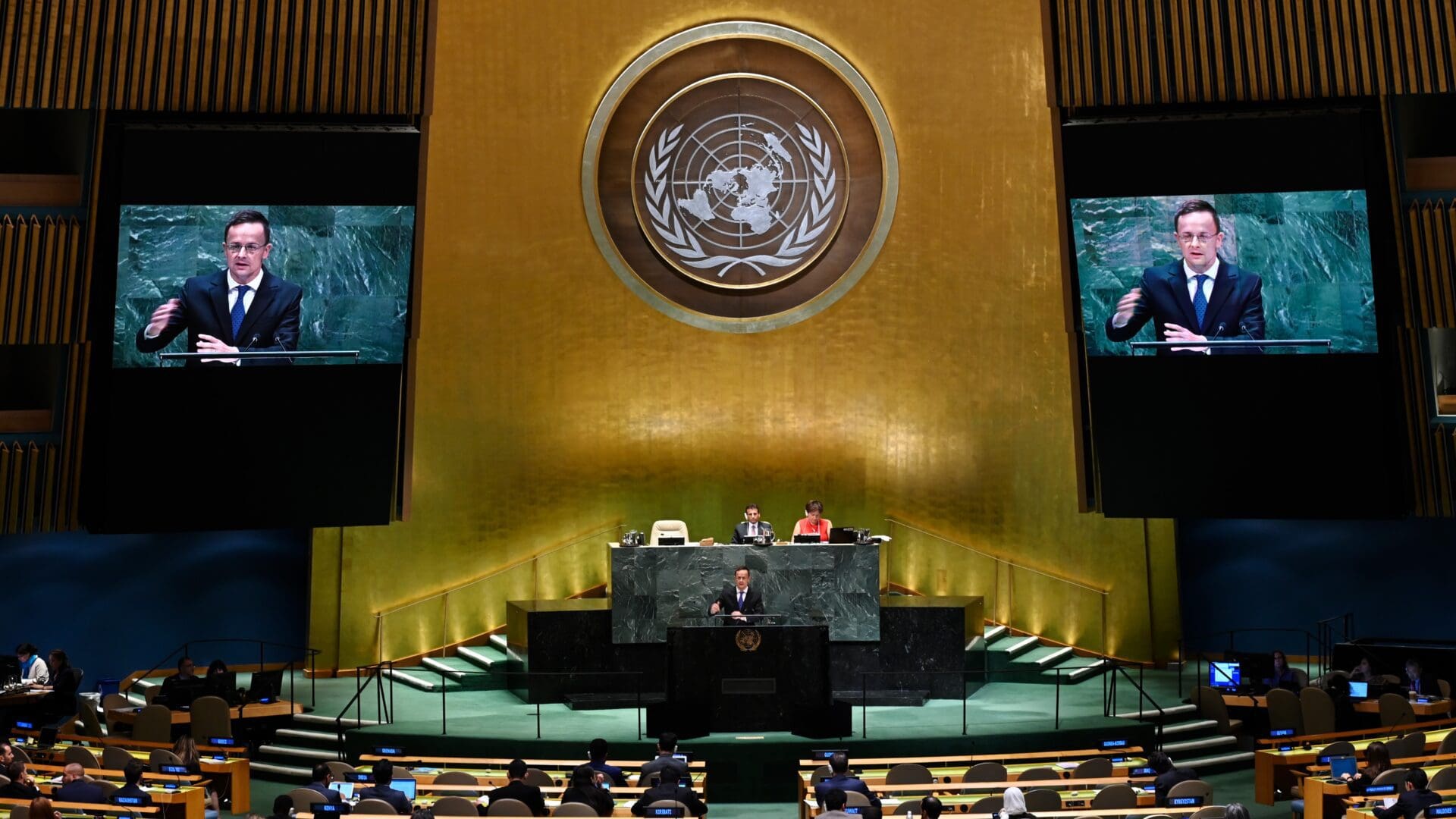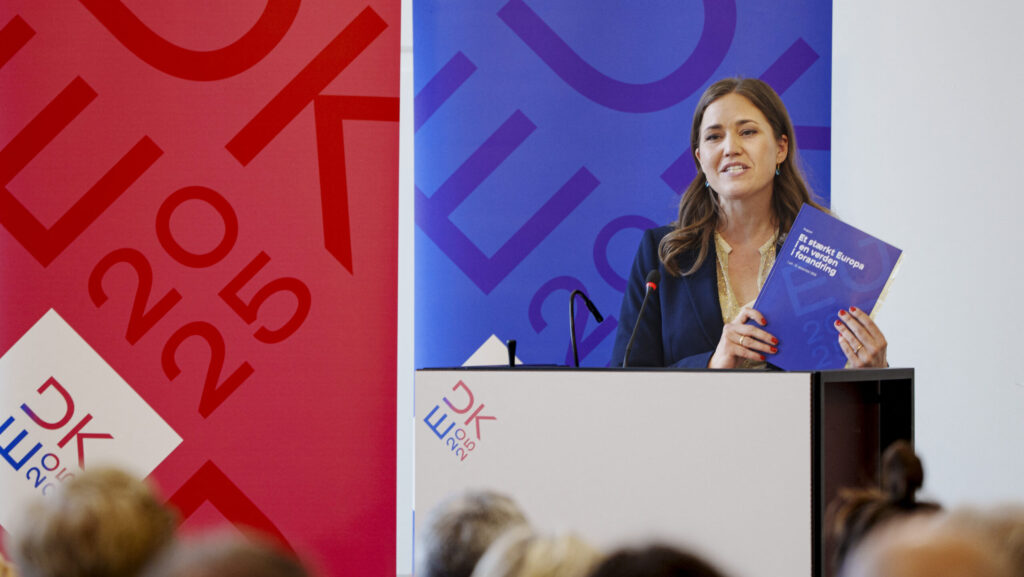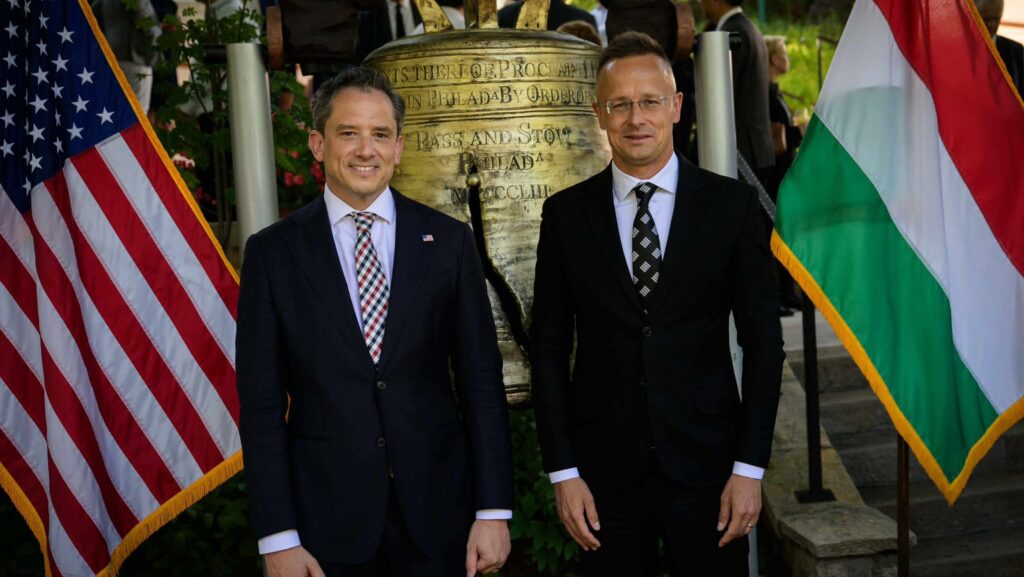‘97% NEM a szankciókra!’ was one of the first billboard signs that greeted me in Budapest just a couple of weeks ago. It screamed from telephone poles and buildings everywhere and I wondered what it meant. Since one of the few Hungarian words I know is ‘nem’ or “no‘ in English, and ‘szankciókra’ is similar to the English word ‘sanctions,’ I soon translated this ubiquitous billboard —‘97 per cent no to sanctions!—and realized its importance. It is not the Orbán government that has refused the West’s energy sanctions against Russia—but the overwhelming majority of the Hungarian people. This is an example of national sovereignty in practice: the will of the people, within a sovereign member state of the European Union, has spoken.
In 2004, Hungarians did not join the EU expecting to be ruled by a Eurocratic elite
who want to create a federal top-down political union; nor do Hungarians want their national decision-making power taken and placed in the hands of the European Commission. Hungarians have fought for a thousand years to keep their unique Magyar identity and freedom. And, while Americans have to reach back almost 250 years to remember our last fight for independence, Hungarian memories of Soviet tanks, oppression, torture and control are still extremely vivid—after 46 years of occupation, the Soviets only reluctantly withdrew in 1991.
On my second trip to Hungary in May 2022, my husband and I toured the House of Terror in Budapest, the former headquarters of both the Nazi Germany– (1944) and Soviet–led (1945) occupying regimes. I despise this place and at the same time find it a fascinating tribute to the Hungarian spirit and will to survive. The dark and monstrous Soviet tank that first greets visitors, the imposing uniforms of the Arrow Cross and Red Army, the propaganda posters and films designed to brainwash Hungarians into submission, and the cramped, damp dungeon where dissidents were interrogated, imprisoned, tortured, and killed—are all needful reminders of what the loss of freedom can look like. I can assure you this place is indeed a ‘house of terror.’ When Western news media reports that Hungarians are ‘Russia-sympathizers,’ I can only laugh in disgust.
I believe that
Hungarians, only 10 million-people-strong, and ‘caught’ geopolitically between the East and West, cling fervently to their freedom and sovereignty
because these memories are so fresh: they remember living without the right to control their own destinies, without the right to practice their religion or to celebrate their culture, identity, or way of life. The preservation of these values is the main topic of the book I’m writing as the first international Senior Fellow for the Center for Fundamental Rights in Budapest. With this book I hope to give Americans, and the West, a more authentic and understanding view of Hungary, past and present.
On my most recent trip to Budapest, I was startled by the number of Hungarians who told me (with confused looks on their faces) that the rhetoric currently coming out of the USA reminds them of ‘the Soviet days.’ Americans should pay attention—our government, our corporations, our media and political elites are finding it way too easy to oppress freedom of thought and speech, ‘cancelling’ those who disagree with their ideological or political agenda, taking away livelihoods and reputation. President Joe Biden’s vaccine mandates and COVID-19 lockdowns smack of totalitarianism; Attorney General Merrick Garland’s willingness to label American parents as ‘domestic terrorists’ and to use the FBI for raiding the homes of law-abiding citizens is reminiscent of authoritarian-style ‘justice.’ But Americans aren’t fighting back hard enough, perhaps because we don’t remember what it’s like not to be free. Hungarians do.
Prime Minister Viktor Orbán’s approach to the Russian-Ukraine war is not Russia-sympathetic, but Hungarian-pragmatic.
He has made it clear that Hungary condemns the Russian invasion into Ukraine and stands for Ukrainian sovereignty, but not to the point that agreeing to energy sanctions would crush Hungary’s economy.
Like Europe, Hungary has been reliant on Russian energy—85 per cent of their natural gas, 65 per cent of their oil and 100 per cent of their nuclear fuel comes from Russia—even Hungarian energy infrastructure is Soviet-era. Although Hungary has made strides to diversify energy sources, it is a landlocked country with limited current options; it is foolish for the EU to think Hungary (or any European country) can change energy reliance overnight in response to sanctions on Russia. Time, foreign investment, and financial support are all needed to change decades-old infrastructure and systems. Fortunately, Hungary’s veto power in the foreign policy arena of the EU (as a sovereign member state) has given them the ability to negotiate and receive waivers for the sanctions which would have killed the Hungarian economy, and which have weakened Europe.
Orbán’s foreign policy approach is ‘Hungary First’, much like former U.S. President Donald Trump practiced ‘America First.’ I wish President Biden would do the same. Biden recently flew half way around the world to Kiev, but has yet to visit the devastated American town of East Palestine, Ohio; Biden has pledged U.S. weaponry to Ukraine that the U.S. military needs; he has committed $110 billion to secure Ukrainian borders and sovereignty, while his own policies have opened the U.S. southern border to mass illegal immigration, Mexican cartels, deadly fentanyl and the threat of terrorism.
Last year, I had coffee and conversation with both President Trump and Prime Minister Orbán (separately) where we enjoyed discussing world events, policy issues, and politics. Both men are extremely smart and able to analyze complicated issues while still seeing and handling the ‘big picture.’ You have to think fast to keep up with Trump in a conversation, as his mind analyses information quickly and moves from topic to topic. PM Orbán is a thoughtful man who asks questions and considers your answers. He had first planned on being an academic and I learned that he sets aside a day each week to read, gather knowledge, and broaden his mind—I have since followed his example.
I find both of these great leaders similar in their straightforward and pragmatic approach to making their countries successful,
independent, and strong. Their type of leadership is needed right now in a time of ‘progressive’ woke silliness that seeks to destroy western civilization, while the oppression of freedom masquerades as ‘rule of law,’ and when the threat of a broadening war and nuclear conflict is very possible.
Hungary is fortunate to have a leader like Viktor Orbán who is brave enough to ‘stick to his guns’ in the face of global pressure, wide-spread media ridicule, the withholding of EU funds, and even a U.S. ambassador who has arrogantly declared it his duty to stop Hungary’s ‘backslide’ into authoritarianism. As Orbán said in his State of the Nation address a couple of weeks ago, ‘We do not care that the world has gone mad. We do not care what repellent aberrations some people indulge in. We do not care how Brussels excuses and explains the inexplicable. This is Hungary!’
But in each of the widely publicized disagreements between the Orbán administration and the EU, in conjunction with the Biden administration, it isn’t Orbán that speaks, but Hungarians. Whether it’s the 97 per cent who said ‘no’ to Western sanctions, the 92 per cent that said ‘no’ to the EU’s mandatory migrant relocation, the overwhelming majority of respondents who said ‘no’ to the EU’s LGBT curriculum, or the 4th consecutive landslide victory of Viktor Orbán and his party—Hungarian spirit, identity, and sovereignty remain. The will of the people has spoken.

As a policy expert and strategist, Dr. Shea provides analysis and recommendations to U.S. and foreign officials at the highest levels of government. During the Trump administration, Dr Shea worked directly with Sec. Mike Pompeo and Senior Advisor Ivanka Trump on a number of issues while serving as the VP of International Affairs for Concerned Women for America. Shea is an expert in foreign policy and aid, national security, international development, women’s empowerment, and human rights.
Dr. Shea regularly publishes Op-eds in outlets such as National Review, Daily Signal,
The Washington Times, The European Conservative, Daily Caller, the Hill, Washington Examiner, the Federalist. She is a frequent guest on TV news and radio and presents to venues such as Wilson Center for International Scholars, U.S. Department of State, the Heritage Foundation, CPAC Hungary 2022, and the Gulf Studies Symposium.








